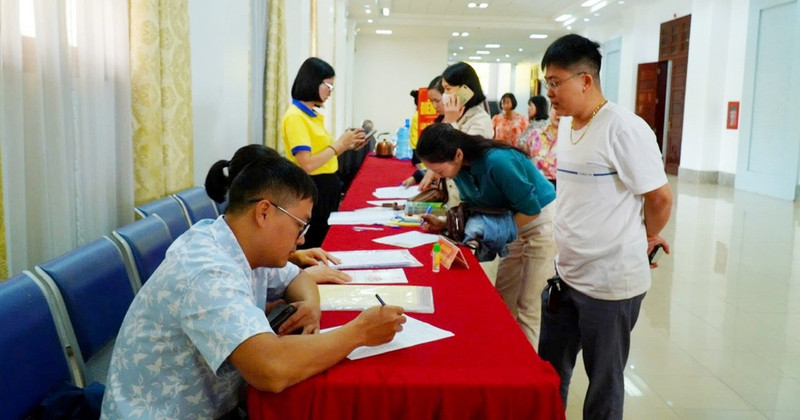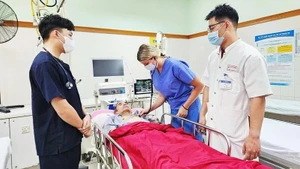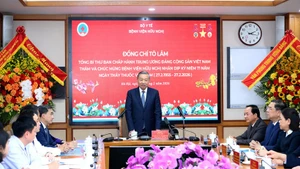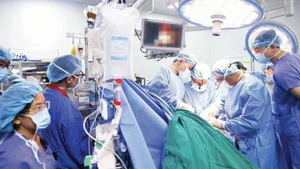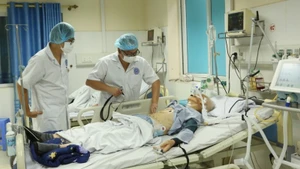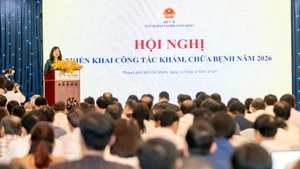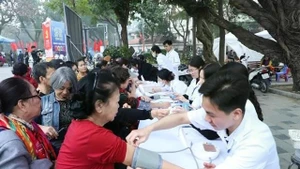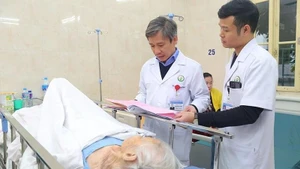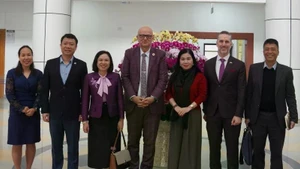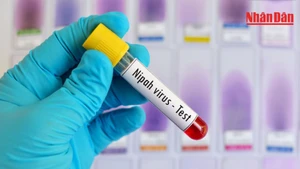Many challenges remain
Statistics from the National Coordinating Centre for Human Organ Transplantation show that from June 1992 to December 2024, Vietnam successfully performed 9,516 organ transplants. The majority of these transplants included kidney, liver, kidney-pancreas, heart-lung, limb, and intestinal transplants.
Notably, the year 2024 set a record for successful post-brain-death organ donations, with 41 cases — exceeding the combined total number of similar cases from the previous three years (2021, 2022, and 2023), which was 36 cases. Thanks to these successful organ donations, Vietnam performed its first simultaneous heart-liver transplant from a brain-dead donor and successfully conducted a trachea transplant from a brain-dead donor, an extremely rare procedure worldwide.
The primary reason for this situation is the limited effectiveness of public awareness campaigns, which have yet to significantly change people’s perceptions and behaviours regarding organ donation. Additionally, the process for individuals to register as organ donors, either online or in person, remains complicated due to issues with software systems and access points.
Although Vietnam has made remarkable achievements in organ and tissue transplantation, the most pressing issue remains the severe shortage of transplantable organs. From 1992 to 2023, only about 6% of donated organs in Vietnam came from brain-dead donors. In contrast, in developed countries, the majority of transplant organs (90–95%) come from deceased donors, while living donors account for only 5–10%. Notably, as of October 14, 2024, only 102,759 people nationwide have registered as organ donors.
According to Associate Professor Dr Nguyen Thi Kim Tien, Chairwoman of the Vietnam Association for Organ and Tissue Donation Advocacy.
Meanwhile, information technology in organ donation management, such as donor registration, waitlist coordination, organ transplantation logistics, data management, reporting, and feedback, remains underdeveloped and lacks adequate investment. Furthermore, there are still no comprehensive technical protocols for all types of organ transplants to establish standardised procedures and cost structures. Insurance coverage for organ donation and transplantation also remains insufficient, creating further challenges.
Hoang Van Trinh, Vice President of the Lai Chau Provincial Labour Federation, stated that as of now, 1,524 trade union members, civil servants and workers in the province have registered to donate organs and body parts. Additionally, the province currently has 2,019 volunteers who have been issued organ donation cards through both online and in-person registration.
However, efforts to promote and encourage organ and tissue donation still face numerous challenges, such as a limited supply of educational materials for awareness campaigns. Furthermore, organ and tissue donation initiatives are primarily integrated into blood donation drives rather than being conducted as independent awareness programmes.
Meanwhile, most officials responsible for awareness campaigns are working on a part-time basis and have not received specialised training in knowledge and skills related to organ donation. Public awareness remains limited, with cultural and religious beliefs, family opposition, and the mindset that the body must remain intact after death leading many people to hesitate and refrain from registering as donors.
Promoting organ and tissue donation activities
Deputy Minister of Health Tran Van Thuan stated that after more than 30 years since the first kidney transplant in 1992, Vietnam has mastered transplantation technology, successfully performing 9,516 transplants across 28 hospitals nationwide. Notably, complex procedures such as lung transplants at the National Lung Hospital and simultaneous heart-liver transplants at Viet Duc Friendship Hospital demonstrate that Vietnam’s medical expertise is approaching global standards.
However, organ donations from deceased or brain-dead donors remain scarce, while the demand for transplants continues to rise. Recognising the importance of this issue, the Party, the Government, and the Ministry of Health have developed and implemented various policies and programmes to encourage and facilitate organ and tissue donation.
Specifically, following the prime minister’s appeal on May 19, 2024, dozens of hospitals organised ceremonies to promote posthumous organ and tissue donation registrations. Additionally, associations advocating for organ and tissue donation have been established, not only within public healthcare facilities but also in private medical institutions.
On the other hand, the Ministry of Health has been actively working to improve the regulatory framework and policies to promote the strong and sustainable development of organ and tissue donation, retrieval, and transplantation. Efforts include issuing professional technical guidelines on the donation, retrieval, transplantation, transportation, preservation, and post-transplant care for liver transplants from both living donors and brain-dead donors. Additionally, Circular No. 48/2024/TT-BYT (dated December 31, 2024) establishes regulations for transplant registration and principles for coordinating the retrieval and transplantation of organs from deceased donors, providing clearer guidance and encouraging posthumous organ and tissue donation.
However, in reality, there are still no clear policies or mechanisms for counselling on organ and tissue donation from brain-dead or cardiac-dead donors. Advisory and advocacy teams formed at hospitals lack adequate incentives and support. Despite increased communication efforts, public awareness remains limited, with many individuals hesitant due to concerns related to spirituality, ethics, and misconceptions about organ donation.
To address these challenges and limitations, the Ministry of Health will continue researching and proposing specific mechanisms and policies to support and facilitate the establishment of organ and tissue donation counselling teams in hospitals and related organisations. Ensuring appropriate incentives for these teams will help them work with peace of mind. Additionally, the Ministry will enhance international cooperation to learn from countries with advanced organ donation systems and develop specialised training programmes for organ donation counselling.
Furthermore, the Vietnam Association for Organ and Tissue Donation Advocacy, the National Coordination Centre for Organ Transplantation, and hospitals will closely collaborate with socio-political organisations to intensify communication efforts. These efforts include diversifying awareness campaigns by leveraging digital platforms, social media, television, and print media to spread the message of organ donation and foster long-term changes in public perception. A nationwide network connecting transplant hospitals will also be developed to facilitate information-sharing and experience exchange. Additionally, partnerships with religious and community organisations will be strengthened to create a more widespread and impactful movement within society.
